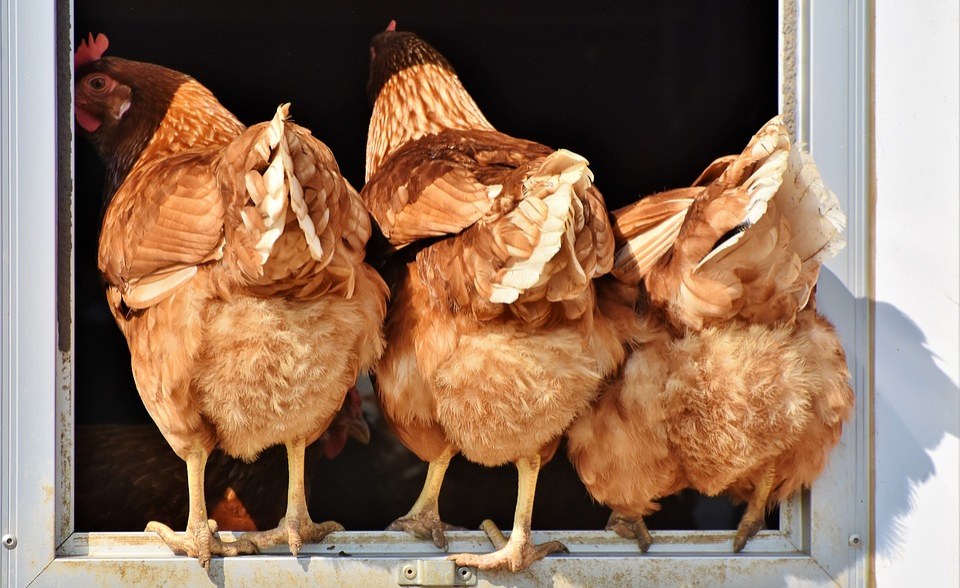Mr. Ismaila Jallow, a poultry farmer, has called on the government and the relevant authorities to reconsider lifting the temporary ban on the importation of small chicks from Senegal.
Speaking in an interview, he said the ban is adversely affecting his business and livelihood. Jallow owns a poultry farm at Yarambamba which has been operating since 2017. He has 3 employees who are working with him at the poultry, where they harvest both broilers and layers.
“Three months ago, I applied to the IOM fund for the cash flow program and I was awarded a certificate and grant. Since then, the government has placed a temporary ban on the chicks from Senegal, due to the outbreak of a bird flu a few months ago in Senegal,” he explained.
Jallow said they get the best breeds of chicks from Senegal at an affordable price. And through that, he sustains his business and livelihood.
“When the outbreak happened in Senegal, the government placed a ban on the importation of chicks which is still in place, even though I have learnt from reliable sources from Senegal that the ban instituted in Senegal, where the outbreak happened, is now lifted because the infection is no longer there,” he said.
Speaking further, Jallow lamented that currently, his colleagues and himself in the poultry production have resolved to secure chick breeds from local vendors, which has shown evidence of poor breeding and takes longer time to mature compared to the breed purchased from Senegal.
He also decried that the high mortality rate in their production and the exorbitant cost for the feed for his chicks, have compelled him to close his shop, adding what he earns from the sales of his products is poor.
“I am calling on the government to reconsider lifting the ban on the importation of chicks and ensure that effective strategies and measures are put in place such as the issuance of health test certificates to importers of chicks, to ensure that the poultry products that we want to import into the country are safe and healthy,” he appealed.
Dr. Abdou Ceesay, Director General at Department of Livestock Services, explained that the objective of the ban was to prevent the entry of bird flu into the country that was detected in Senegal in January.
This, he said, came with some negative consequences, especially on the poultry aspect in the country, saying many of the poultry inputs come from Senegal- this includes chicks and chicken meat.
“We have been making some attempts to minimize that impact by ensuring that poultry production inputs are eventually available from other local sources within the country and other countries that are not affected by the disease,” he said.
He admitted that in as much as the ban has created some negative impacts for poultry producers in the country, it also gave opportunities to the local institutions that are into poultry inputs production supplies.
Nonetheless, Ceesay said there still remain challenges and they are monitoring the situation with their counterparts in Senegal. He added that because the disease is such that once it is reported in a country- a member of the World Organization for Animal Health- the organization will be notified of the outbreak of the disease in that member country.
Director Ceesay said two weeks before the Tobaski (Muslims feast), their taskforce members went to Senegal for emergency response and preparedness for highly pathogenic Asian influenza in the Gambia with their Senegalese veterinary counterparts.
He said they were told by then that they (counterparts) were still working on the evidence that emanated from their investigation that they were conducting since the beginning of the outbreak which entailed taking samples from the affected areas.
“We are monitoring the situation and once they finish their investigations, they will send the report to the organization and the outcome will be communicated to them,” he said.
Mr. Ousman Bojang, director of trade at the ministry of trade, said the two countries have a broader trade relation, which among other products, includes life chicks.
“Live chickens coming from Senegal were banned due to the outbreak of a disease that affects birds. As a way of protection, we had to institute a ban on those products coming from Senegal. This is in line with our international trade commitment,” he said.
“We are working very closely with the livestock department, who are on regular basis in touch with their partners in Senegal to make sure that they get regular updates regarding the matter.”
Bojang said they are always giving updates from the livestock department as per the situation and once the area is clean of the disease, they will work together to ensure that the ban is lifted to ensure there is free flow of chicks in the sector.



